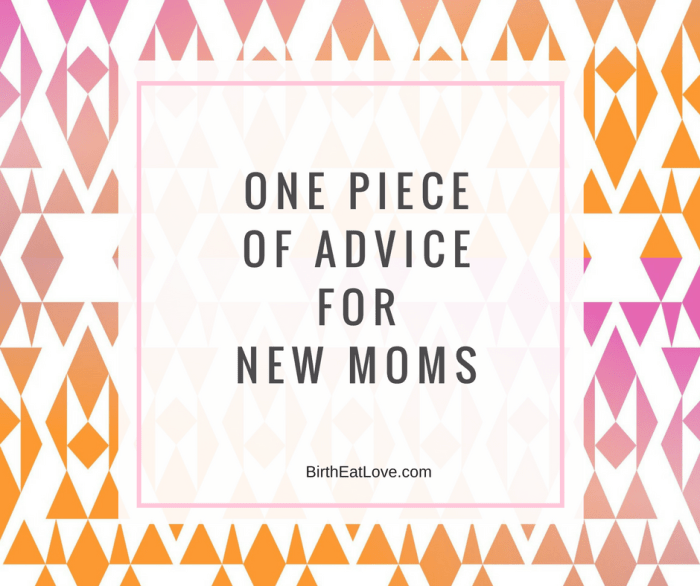Parenting Tips for New Moms takes center stage, this opening passage beckons readers with american high school hip style into a world crafted with good knowledge, ensuring a reading experience that is both absorbing and distinctly original.
Whether you’re a new mom or soon-to-be one, these tips will help you tackle the challenges of motherhood with confidence and style. From creating a support system to balancing work and motherhood, this guide has got you covered.
Importance of Parenting Tips for New Moms
Being a new mom can be overwhelming, and having access to helpful parenting tips can make a significant difference in navigating this new chapter of life. These tips are crucial for new moms as they provide guidance, support, and reassurance during a time of uncertainty and change.
Benefits of Following Parenting Tips for New Moms
- Reduce stress and anxiety: Parenting tips can help new moms feel more confident in their abilities and reduce feelings of stress and anxiety.
- Promote bonding with the baby: By following parenting tips, new moms can create a strong bond with their baby and enhance the overall parent-child relationship.
- Improve baby’s well-being: Tips on feeding, sleeping, and overall care can contribute to the well-being and development of the baby.
- Connect with other moms: Following parenting tips can help new moms connect with other parents, share experiences, and build a supportive community.
Common Challenges New Moms Face and How Tips Can Help Overcome Them
- Postpartum depression: Parenting tips can provide strategies for coping with postpartum depression and seeking help when needed.
- Sleep deprivation: Tips on establishing a sleep routine and self-care can help new moms get the rest they need to function effectively.
- Balancing work and motherhood: Advice on time management and prioritizing tasks can assist new moms in finding a balance between work and taking care of their baby.
Creating a Support System

Having a strong support system is crucial for new moms as they navigate the challenges of motherhood. It provides emotional encouragement, practical help, and a sense of community during this transformative period.
Who Can Be Part of a New Mom’s Support System
- Partner or Spouse: They can offer hands-on support with childcare tasks and emotional support for the new mom.
- Family Members: Parents, siblings, or other relatives can lend a helping hand with household chores, cooking meals, or looking after the baby.
- Friends: Close friends can provide a listening ear, share experiences, and offer a break from the daily routine.
- Healthcare Providers: Doctors, nurses, or lactation consultants can offer valuable advice and guidance on caring for the newborn.
- Online Communities: Joining online forums or social media groups for new moms can provide a sense of belonging and a platform to ask questions and seek advice.
Building and Maintaining a Support System
- Communicate Your Needs: Don’t be afraid to ask for help or express what you need from your support system.
- Set Boundaries: Establish clear boundaries with family and friends to ensure your well-being and avoid feeling overwhelmed.
- Self-Care: Take time for yourself to recharge and prioritize your mental and physical health to be the best caregiver for your baby.
- Attend Support Groups: Joining local mom groups or parenting classes can help you connect with other moms facing similar challenges.
- Express Gratitude: Show appreciation for the support you receive from your network to strengthen those relationships and foster a positive environment.
Self-Care for New Moms
Taking care of yourself is crucial as a new mom, as it not only benefits your own well-being but also enables you to be the best parent you can be for your child. Self-care helps reduce stress, prevent burnout, and improve overall mental and physical health.
Self-Care Tips for New Moms, Parenting Tips for New Moms
- Get Adequate Rest: Prioritize sleep whenever possible, even if it means taking naps during the day when your baby sleeps.
- Healthy Eating: Fuel your body with nutritious foods to keep your energy levels up and support your overall health.
- Stay Hydrated: Drink plenty of water throughout the day to stay hydrated and maintain optimal bodily functions.
- Exercise: Incorporate gentle exercises like walking or yoga into your routine to boost your mood and energy levels.
- Take Breaks: Allow yourself moments of relaxation and alone time to recharge and prevent feelings of overwhelm.
- Connect with Others: Build a support system of friends, family, or other new moms to share experiences and receive emotional support.
- Practice Mindfulness: Engage in activities like meditation or deep breathing exercises to reduce stress and stay present in the moment.
Impact of Self-Care on New Moms
Self-care plays a significant role in a new mom’s overall well-being by improving mental health, reducing feelings of isolation, and increasing resilience to the challenges of parenthood. When you prioritize self-care, you are better equipped to handle the demands of motherhood and nurture a positive relationship with your child.
Bonding with the Baby
Bonding with your baby is crucial in the early stages of motherhood as it helps create a strong emotional connection between you and your little one. This bond not only fosters a sense of security for the baby but also promotes their overall development.
Techniques for Bonding
- Skin-to-skin contact: Holding your baby against your bare skin helps regulate their body temperature, heart rate, and breathing. It also encourages the release of oxytocin, the “love hormone,” promoting bonding.
- Eye contact and talking: Engage with your baby by making eye contact, smiling, and talking to them. Your voice and facial expressions help them feel secure and loved.
- Cuddle time: Spend quality time cuddling with your baby, whether during feeding, nap time, or playtime. Physical touch is a powerful way to bond with your little one.
Importance of Bonding
Bonding with your baby in the early stages of motherhood helps create a sense of trust and security for them. It also enhances their emotional development, cognitive skills, and social interactions as they grow. A strong bond with your baby lays the foundation for a healthy relationship throughout their life.
Tips to Strengthen the Bond
- Be present: Spend quality time with your baby, engaging in activities that promote bonding such as singing, reading, and playing together.
- Trust your instincts: Listen to your baby’s cues and respond promptly to their needs. Building trust and reliability strengthens the bond between you and your little one.
- Take care of yourself: Remember that self-care is essential for bonding with your baby. When you feel rested and rejuvenated, you can provide the best care and attention to your little one.
Balancing Work and Motherhood: Parenting Tips For New Moms

Finding the right balance between work and motherhood can be challenging for new moms. It’s essential to prioritize tasks effectively and set boundaries to maintain a healthy work-life balance.
Strategies for Balancing Work and Motherhood
- Organize and plan your schedule: Utilize calendars, planners, or apps to manage your work and family responsibilities efficiently.
- Delegate tasks: Don’t be afraid to ask for help from your partner, family members, or childcare providers to lighten your load.
- Set realistic goals: Be realistic about what you can achieve in a day and avoid overcommitting yourself both at work and at home.
- Prioritize self-care: Make time for yourself to recharge, whether it’s through exercise, meditation, or hobbies.
Time Management and Prioritization for Working Moms
- Identify your most important tasks: Focus on completing high-priority tasks first to avoid feeling overwhelmed.
- Establish a routine: Create a daily or weekly schedule that includes dedicated time for work, family, and self-care.
- Avoid multitasking: Concentrate on one task at a time to increase productivity and reduce stress.
- Learn to say no: Don’t be afraid to decline additional work or social commitments if they interfere with your work-life balance.
Setting Boundaries for a Healthy Work-Life Balance
- Establish clear work hours: Communicate with your employer about your availability and set boundaries to prevent work from encroaching on family time.
- Create a designated workspace: Separate your work area from your living space to maintain a distinction between work and home life.
- Unplug and unwind: Disconnect from work emails and calls during non-work hours to focus on quality time with your family.
- Practice self-compassion: Don’t be too hard on yourself if you can’t accomplish everything perfectly – remember to prioritize your well-being.